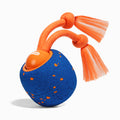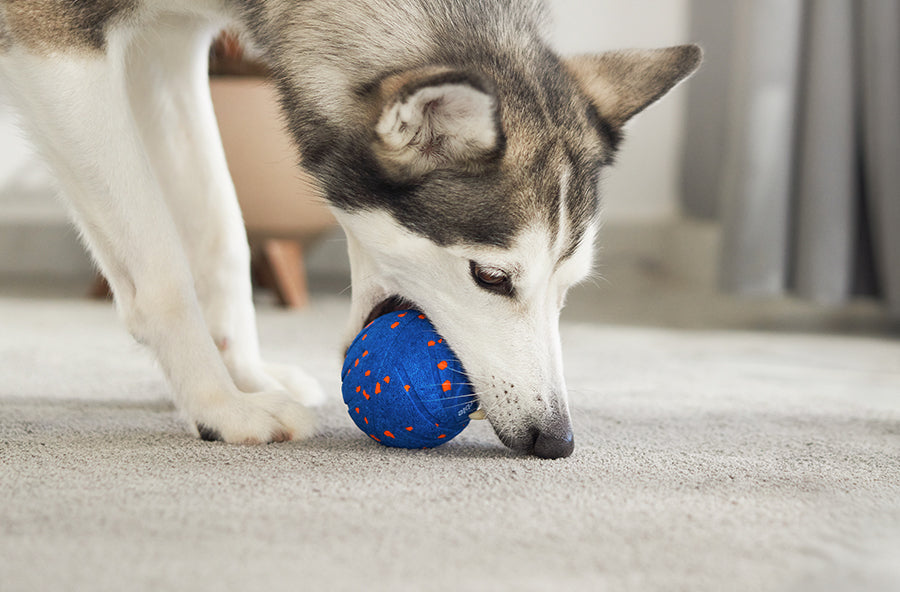Bringing a new puppy into your home is an exciting time, but it can also be overwhelming. Understanding your puppy's behavior is crucial to a happy and healthy relationship. By observing your puppy's actions, you can learn what they need, what they are trying to communicate, and how to best support them as they grow and develop.
We'll explore 7 behaviors to look out for in a new puppy, including biting, whining, chewing, separation anxiety, jumping, barking, and digging. By understanding these behaviors and how to manage them, you can ensure a smooth transition for both you and your new furry friend. Whether you're a seasoned dog owner or a first-time puppy parent, this information will be useful in helping you build a strong and loving bond with your new companion.
Behavior 1: Biting
Biting is one of the most common behaviors in puppies. Puppies are naturally curious and love to explore their environment with their mouths. However, biting can become a problem if it's too aggressive or hurts someone.
So why do puppies bite? Puppies bite as a way to play and explore their environment. It's also a way for them to relieve teething pain and assert their dominance. To discourage biting, it's essential to teach your puppy alternative behaviors and provide them with plenty of chew toys to help soothe their gums. When your puppy bites, you can say "ouch" and stop playing with them, then resume play when they've calmed down. This helps to show your puppy that biting is not acceptable behavior.
In addition, positive reinforcement training, such as rewarding your puppy when they play nicely, can help to reinforce the desired behavior. With patience and consistency, you can help your puppy learn to play without biting.

Behavior 2: Whining
Whining is a common behavior in puppies that can be endearing at times, but if it becomes habitual, it can be a nuisance. Understanding why your puppy is whining and how to manage it is crucial for creating a happy and healthy relationship with your furry friend.
Puppies whine for various reasons such as hunger, discomfort, anxiety, or a desire for attention. Identifying the cause of the whining can help you determine the best approach to manage it.
To manage whining, it's important to address the underlying reason for the behavior. If your puppy is hungry, ensure they are well-fed. If they are uncomfortable, make sure they have a comfortable place to rest. If they are anxious, provide comfort and reassurance, and if they are seeking attention, consider engaging them in interactive playtime.
It's also important to establish clear boundaries and ignore whining behavior. By providing attention only when the puppy is quiet, can help your puppy learn to communicate their needs in a more appropriate way.
Behavior 3: Chewing
Chewing is a natural behavior for puppies, but it can quickly become destructive if not properly managed.
Explanation of why puppies chew: Puppies chew as a way to explore their environment and relieve teething pain. Chewing is also a way for them to exercise their jaws and satisfy their natural urge to gnaw on things.
To redirect chewing, it's important to provide your puppy with plenty of chew toys. When your puppy chews on something inappropriate, such as furniture or shoes, say "no" firmly and provide them with a chew toy instead. This helps to show your puppy what is acceptable to chew on and what is not.

Behavior 4: Separation Anxiety
Separation anxiety can be a serious issue for some puppies and can lead to destructive behaviors when left alone. Normally occurs when a puppy becomes overly attached to their owner and experiences distress when left alone. This can result in destructive behaviors such as chewing, barking, or eliminating indoors.
To help reduce separation anxiety, it's important to gradually increase the amount of time your puppy spends alone. Start with short intervals and gradually increase the duration as your puppy becomes more comfortable. You can also provide your puppy with interactive toys, such as puzzle toys, to keep them occupied while you're away.
Behavior 5: Jumping
Jumping is a common behavior in puppies, and while it may be cute, it can also be annoying or even dangerous if not properly managed. Puppies jump as a way to greet people and express their excitement. It's also a way for them to assert their dominance and get attention.
To discourage jumping, it's important to ignore the behavior. Avoid petting or talking to your puppy when they jump on you, and instead wait for them to calm down and sit. This helps to show your puppy that jumping is not an acceptable behavior.
Teaching your puppy alternative behaviors, such as sitting or lying down, is also essential. Rewarding your puppy when they exhibit these behaviors reinforces the desired behavior and can help your puppy learn to control their excitement and greet people in a more appropriate way.

Behavior 6: Barking
Barking is a natural behavior for dogs and an important means of communication, but excessive barking can become problematic if left unchecked. There are several reasons why puppies bark, including fear, excitement, boredom, or a need for attention. Identifying the root cause of your pup's barking is crucial to effectively manage the behavior.
To manage excessive barking, it's essential to address the underlying cause. If your puppy is feeling fearful or anxious, providing comfort and reassurance can help them feel more at ease. For pups who are easily bored, incorporating interactive toys and physical activity into their routine can help redirect their energy. And for those seeking attention, increasing interactive playtime and incorporating training sessions can provide the engagement they need.
Establishing clear boundaries and ignoring barking behavior is another important aspect of managing excessive barking. By only rewarding quiet behavior, you can reinforce the desired behavior and minimize unwanted barking. Positive reinforcement training is another effective strategy for teaching alternative behaviors, such as quieting on command. Consistently rewarding your puppy's desired behavior can help them learn to regulate their barking and become better communicators.
Behavior 7: Digging
Digging is a natural behavior for dogs and one that can cause issues for pet parents when it leads to the yard or property damage. There are several reasons why puppies dig, including boredom, anxiety, or an instinct to seek out prey. Understanding the root cause of your pup's digging can help you manage the behavior.
To address excessive digging, providing your puppy with ample exercise and interactive toys is essential. Keeping your puppies engaged and active can help reduce the likelihood of destructive digging. It can also be helpful to create designated digging areas in your yard, such as a sandbox or digging pit, to provide your pup with an acceptable place to indulge their instincts.
Supervising your pup and redirecting digging behavior when it occurs in inappropriate areas is another important strategy. By providing positive reinforcement for alternative behaviors, such as playing with toys or relaxing, you can reinforce the desired behavior and help your pup learn to regulate its digging instincts.

Conclusion
As a responsible pet owner, it's crucial to understand and manage your puppy's behaviors. By addressing common issues like chewing, jumping, barking, and digging, you can ensure that your furry friend becomes a well-behaved and content companion.
Remember that each puppy is unique, and what works for one may not work for another. Be patient and understanding when approaching each behavior and maintain a positive attitude. With the right tools and techniques, you can help your puppy become a well-adjusted and obedient companion.
If you're having trouble managing your puppy's behavior, don't hesitate to seek the advice of a professional dog trainer or behaviorist. They can provide additional support and guidance to help you and your puppy succeed. Ultimately, the effort you put into your puppy's training and development will pay off in a lifetime of love and companionship.




















Leave a comment
All comments are moderated before being published.
This site is protected by hCaptcha and the hCaptcha Privacy Policy and Terms of Service apply.